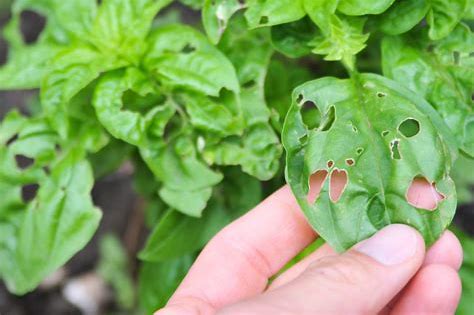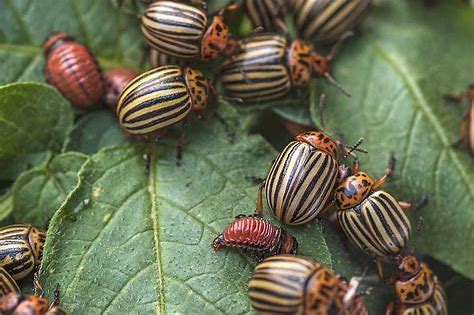
What is a natural method of pest control? In this article, we will discuss the 5 best natural pest control methods which will certainly be useful for every garden owner or for you in the future. Let’s start reading now!
Key Takeaways
- Liquid dish soap and warm water mixture can be an effective method to get rid of aphids, spider mites, whiteflies, and other bad garden bugs. Introducing beneficial bugs such as ladybugs or lacewings can also help keep the population of bad bugs under control.
- Good garden bugs can help protect your garden from bad bugs. Identifying and encouraging these beneficial insects can be done with the help of your smartphone. Once you know which ones are good, you can start encouraging them with food and water sources.
- Planting certain flowers and herbs can attract beneficial bugs that will help keep pests away from your plants. For example, planting catmint, alyssum, yarrow, mint, or rosemary near roses can attract beneficial bugs like ladybugs, lacewings, and parasitic wasps that eat harmful pests.
- Diatomaceous earth is a natural and effective pest control method that can be used in various areas of your home and garden. It is safe for humans and pets but can be harmful to insects.
- Homemade traps can be used to control pests, such as fruit flies and slugs. A jar with apple cider vinegar and a piece of fruit can be used to trap fruit flies, while a jar with beer can be used to trap slugs.
5 Natural Method Of Pest Control With No Chemicals Allowed
Gardening can be a rewarding and enjoyable experience, but it can also be a challenge when pests start to invade your garden. Fortunately, there are many natural garden pest control strategies that you can use to keep your garden healthy without resorting to harsh chemicals.
The use of kitchen items like garlic, onions, coffee grounds and citrus peels can be effective in naturally controlling garden pests. Additionally, attracting beneficial bugs and using methods such as companion planting, diatomaceous earth, and homemade traps can also be beneficial for pest control. With these natural garden pest controls you can protect your garden without the need for chemical pesticides.
1. Get Rid of Aphids, Spider Mites, White Flies and Other Bad Garden Bugs with Dish Soap
Common garden pests such as aphids, spider mites and whiteflies are troublesome for plants, as these tiny bugs feed on the sap of the plant, depriving it of life-giving moisture which causes them to become withered and yellow. If an infestation is found, quick action should be taken to prevent further damage.
A mixture of liquid dish soap and warm water is an effective method to get rid of aphids on plants. It is important to inspect plants regularly for signs of infestation and to introduce beneficial bugs such as ladybugs or lacewings into the garden, which will help keep the population of bad bugs under control.
2. Keep Bad Bugs Away With Good Garden Bugs

Gardening is a great way to relax and enjoy the outdoors, but it can be difficult to keep pests away from your plants. Fortunately, there are some good garden bugs that can help you protect your garden from bad bugs. The key is to learn how to identify these beneficial insects so you can encourage them in your garden.
Your smartphone can be used to identify beneficial and bad garden bugs. Once you know which ones are good, you can start encouraging them with food and water sources, helping to keep away the bad bugs.
3. Make Your Garden Comfortable For Good Bugs
Having a garden can be a great way to enjoy nature and relax in your own backyard. But did you know that nature can also help protect your home? By planting certain flowers and herbs, you can attract beneficial bugs that will help keep pests away from your plants.
Planting catmint, alyssum, yarrow, mint, or rosemary near roses will attract beneficial bugs like ladybugs, lacewings, and parasitic wasps that eat harmful pests. Also planting ground-hugging plants like mint or rosemary can attract soldier beetles to keep the garden pest-free.
5. Keep Pests Away with Delicious Herbs
Herbs can act as pest deterrents for gardens and lawns. Growing certain herbs such as parsley, fennel, lemon balm, sage, dill, basil, lavender, thyme and coriander can help keep away bugs that cause trouble in gardens. These herbs also have strong scents that bad bugs don’t like and can be moved around for immediate pest control.
Dill is an effective pest deterrent and can be used in gardens without the need for harsh chemicals or pesticides. It attracts hoverflies which feed on bad bugs, adding flavor to cooking while naturally keeping pests away.
5. Get Rid Of The Larger Bad Garden Bugs By Hand
Hand-picking garden pests, such as caterpillars and Japanese beetles, is an effective way to manage infestations in gardens and lawns. It involves a bit of hard work but will ultimately help keep plants healthy and safe.
To avoid getting bitten or stung when removing larger bad garden bugs, precautions should be taken such as wearing protective clothing and gloves. Additionally, it is important to use tools if coming accross nests or colonies of insects, and dispose of the dead bugs properly.